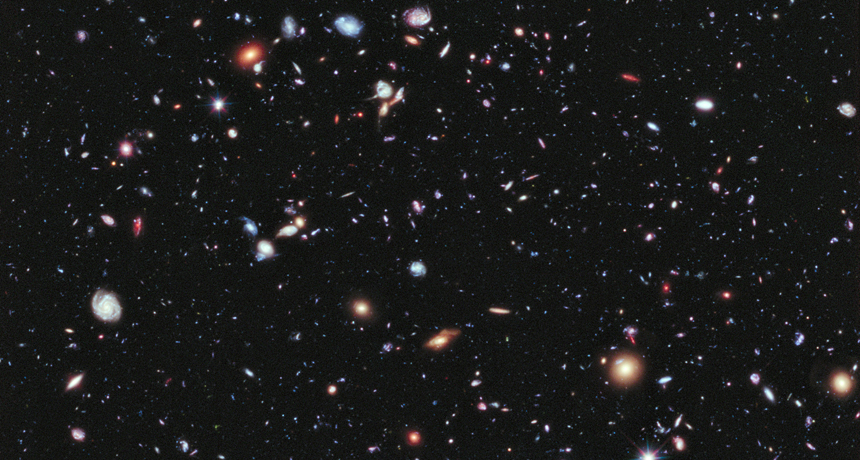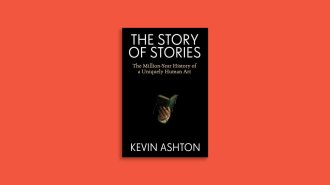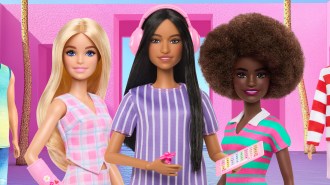Polls don’t identify the real science education problem

In a 2012 poll, 39 percent of Americans said yes, the universe began with a big explosion. But if asked “according to astronomers, the universe began with a big explosion,” then 60 percent said yes.
G. Illingworth, D. Magee, and P. Oesch (University of California, Santa Cruz), R. Bouwens (Leiden University), and the HUDF09 Team/NASA, ESA
First of two parts (read part 2)
Several decades ago, in a simpler time, a pollster quizzed members of the general public on their opinion of the Metallic Metals Act. Nearly 15 percent approved it as a federal measure, but 40 percent said that metal laws should be left to the states. About 30 percent had no opinion.
There was, of course, no such act. It was a fiction designed to demonstrate how Americans willingly expressed opinions on things they knew nothing about.
In truth, the poll itself may have been fictional — nobody seems to be able to verify that it was really conducted. Nevertheless, nobody doubts the basic conclusion. Rarely will people responding to a poll admit their ignorance. Especially in polls about science.
So it shouldn’t be a shock when people express a wrong opinion on a science topic they know nothing about. Such as the origin of the universe. A recent Associated Press poll, for instance, found that only 21 percent of the American adults questioned were “extremely” or “very” confident that “the universe began 13.8 billion years ago with a big bang.” Another 25 percent said that they were “somewhat confident.”
It wasn’t really news. The U.S. National Science Board has been compiling science-knowledge survey results for decades, with similar results about Big Bang beliefs. On a true-false question (“the universe began with a huge explosion”), correct responses have fluctuated between 30 and 40 percent since 1990, reaching 39 percent in 2012.
Similar poor performance shows up on some other science knowledge questions. Less than half of those polled didn’t know that lasers don’t focus sound waves. Barely more than half said it’s true that electrons are smaller than atoms. And in the favorite question for those lamenting the lack of scientific education in America, there’s still about 25 percent who say the sun goes around the Earth.
Most people (83 percent) do, however, agree that the continents move around on the Earth. Perhaps this represents a magnificent victory for professors of plate tectonics. Or it may be that most people would have said the same thing in 1960, when earth science experts believed otherwise.
In any event, the public’s failure to pass science quizzes typically leads to micro-tsunamis of lamentations on Twitter and vociferous demands for better science education. And there’s no doubt that science education itself deserves a grade of “needs to improve.” Yet some of these issues do not have much to do with science education but rather reflect unpleasant realities about the American population. Sad as it is, some people are just clueless about pretty much everything. Enhanced science education programs will never get everybody to understand that the Earth goes around the sun.
And on another level, some people may know full well what scientists think and still choose not to believe them. As the National Science Board’s latest report points out, framing a question in different ways can yield very different correct response rates.
Take the origin of the universe question. Asked if the universe began with a big explosion, 39 percent of Americans polled (in 2012) said yes. But if you said “according to astronomers, the universe began with a big explosion,” the correct response rate jumped to 60 percent.
It’s well-known, of course, that the phrasing of a question can greatly influence polling results, which is one of the reasons why all such surveys should be evaluated skeptically. So it might be a good idea to rethink the relationship between polling questions and the scientific knowledge that members of the public really ought to have. Is it really necessary for the ordinary citizen to understand cosmologists’ consensus on the universe’s origins, or how lasers work?
Well, maybe not. But pollsters point out that such questions are merely meant to be indicators of broader comprehension of science and its principles. Trumpeting concerns about ignorance on any specific question misses the point. It’s the more general understanding and appreciation of science and its methods that’s really important — and that really should be the emphasis of general science education.
In fact, I’d contend (and have contended) that the problem with science education is not that it fails to inculcate enough facts, but that it tries to inculcate too many. Science classes in high school and intro classes in college seem to be taught as though everyone needed preparation to pursue a Ph.D. Seriously, calculating solubility constants in high school chemistry classes is about as useful as teaching drivers’ ed students how to maneuver an F-16 fighter jet. Important general principles that could (and should) be retained for a lifetime are diluted to the point of homeopathic impotence by a flood of excessive technical detail.
I once wrote a column detailing the main things every educated person should know about science, which I will reprise with a new and improved version in Part 2. It was inspired by the physicist Richard Feynman’s famous remarks on the one sentence about science that would be most important to pass down to future generations.
Declared Feynman: “All things are made of atoms — little particles that move around in perpetual motion, attracting each other when they are a little distance apart, but repelling upon being squeezed into one another.”
Everybody should know that much about science. And a few other things. But not much more. The rest is all available somewhere online.
Follow me on Twitter: @tom_siegfried







